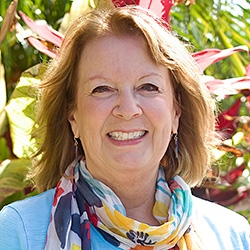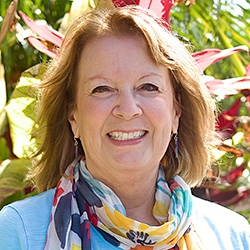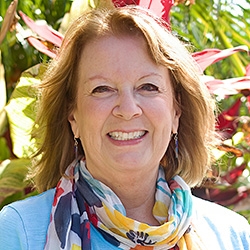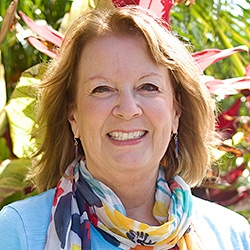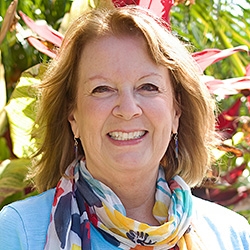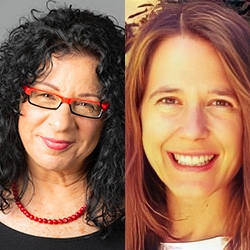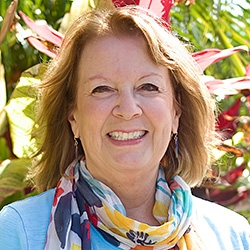

Search Results: support
-
Every one of us is impacted many times each day by micro-freezes that are the resulting fallout from both recent and long ago painful events. During this powerfully healing course, Sarah will walk you through a unforgettable tour of neuroscience, and succinctly demonstrate how NVC and neuroscience together can change your brain and enable your life to become both more fluid and far more resilient.
-
We can ask for what we want but if we repeatedly don’t get it from one source, it's our responsibility to find a new way to get it. We don’t honor our relationships when we insist that people who are unavailable or unwilling to support us meet our needs. Read on for related a parable about a woman persistently asking to get milk from a hardware store.
-
For many people, attempting to connect with others across differences can feel akin to walking through a minefield. In this course recording Roxy explores a variety of concepts and practices that can help you navigate situations that might be confusing, challenging, or even shocking. And she'll be delving into key differentiations, such as equity and equality. This recording will offer a renewed sense of clarity around a number of theories that may help explain specifically why the areas of power, advantage, and rank tend to be so difficult to work with.
-
- Make use of felt-sense and somatic awareness to support faster and deeper shifts in yourself and others
- Master silent empathy to give more ease and flow in your empathy guessing
- "Streetify" your NVC practice by learning how to make your NVC practice more fluent, colloquial, and "natural" and match the person you're speaking with
- De-mystify empathy guessing by learning to identify key linguistic queues
- Build an "emergency empathy" tool kit---with "quick fixes" for challenging situations by using each step of the model for maximum effectiveness
- Interplay both the NVC "mindset" (consciousness/intention) and the NVC "tool kit" for greater ease, fluency and effectiveness
-
Trainer Tip: Next time you prepare for a challenging conversation, solidly connect with your own feelings and needs before entering into meeting. Then attend the meeting open to creating results that work for everyone. This is likely to give increase chances that the conversation will come to a mutually satisfying conclusion.
-
You've probably witnessed and participated in role plays that were powerful tools for inspiration, integration, or healing. You've likely also been in contexts where role plays fell flat, leaving people frustrated, confused, or disengaged. If you're sharing NVC with others – or are envisioning yourself going there in the future – you'll want to take this class, where the focus is on how to increase the chances of having role plays that serve a clear purpose, engage an entire group, and support the deepest learning possible for all.
-
Trainer Tip: Sometimes I wish others would make it easy for me to live my values. If other people would just do their part, I wouldn’t have to work so hard at doing mine. Can you relate? However, if I support peace in the world, this means I act peacefully because it’s important to me, not because it’s important to others. Identify your most important value today. Then live it. Notice how healing this can feel even just after one day.
-
Trainer Tip: Meetings can be unproductive when the participants aren’t clear about their needs or what they want from the group. When participants express opinions without expressing a need or informing the group of what they want, the meeting lacks clarity. Instead, if we can focus on naming our needs and make related requests, we can get closer to resolution much faster and enjoy the process more. Read on for an example.
-
Trainer Tip: Strive for win-win resolutions where no one loses. Try this rather than deciding things by the majority or compromise, where one or more parties feel dissatisfied with the resolution because it involves an element of giving in. An alternative is shifting; both people connect to the needs they are trying to meet, and in doing so, one person makes an honest shift to contribute to the other person’s needs and life.
-
Embrace nonviolence with courage and compassion as you learn to stand for truth in everyday life.
-
Rediscover ease and joy in love by transforming how you perceive, receive and embody connection.
-
Gain practical skills to navigate organizational differences and foster collaboration.
-
- Tune into your self-dialogue with a compassion that supports loving presence
- Shift limiting beliefs about your parenting patterns so you can choose consciously
- Transform frustration, confusion, or guilt into constructive, honest discussions
- Foster your ability to say yes and no in a way that supports your natural limits
-
How can we mobilize this insight in support of our own and others' healing? These recordings will shed light on how the social context into which we are born affects our experience, and what we can do about it at the individual level within the paradigm of nonviolence.
-
It's tempting to shut down a heated conversation when it’s painful and overwhelming. What can give us strength to stay open to hearing and being moved, to being open to new possibility, is recalling the “triad of conversation.” The triad is self and other and then awareness on the third side of the conversation. Here we can return to connection, to what we share and need in common, to a searching together for the way forward.
-
- Learn how to set up and maintain effective systems
- Acquire tips for harnessing community buy-in and the energies of key people
- Transform tension and anxiety into peaceful, life-enriching energy
- Remain grounded and confident when facing any kind of conflict
-
- Learn tips and strategies to ensure ALL voices are heard
- Grow your capacity to name and address power dynamics
- See how prior assumptions and perspectives impact how groups work together
- Explore facilitation components using a caring for all, power-with lens
-
- Inscrease compassion for yourself through understanding why your capacity may lag so far behind your commitment and what you can do to bridge the gap
- Higher Compassion for your children as you understand better what life is like from within their own experience rather than from the outside looking in
- Surge in energy that you can put into new conversations with them designed to make agreements that are based on the truth of where you all are rather than on any "should"
-
We can shift from being absorbed and identified with our inner chatter and feelings to being the space of awareness of these things. Observe your breath. Then observe your mind generating thoughts. Next, feel sensations of your body, particularly the difficult ones. Now, connect with the underlying energy of needs. Ask your unconscious mind for universal needs words related to what you now notice, think and feel.
-
Trainer Tip: Sometimes the expression of our needs can sound like demands or criticism. This can make it harder for people to want to contribute to us. Today, pay attention to how you express your needs. Find ways to release the emotional charge.

Quick Links
Subscription Preferences
Stay In Touch!
Looking for ways to keep up with NVC Academy news, get special offers, free resources, or words of inspiration? Here are five ways to stay engaged:


